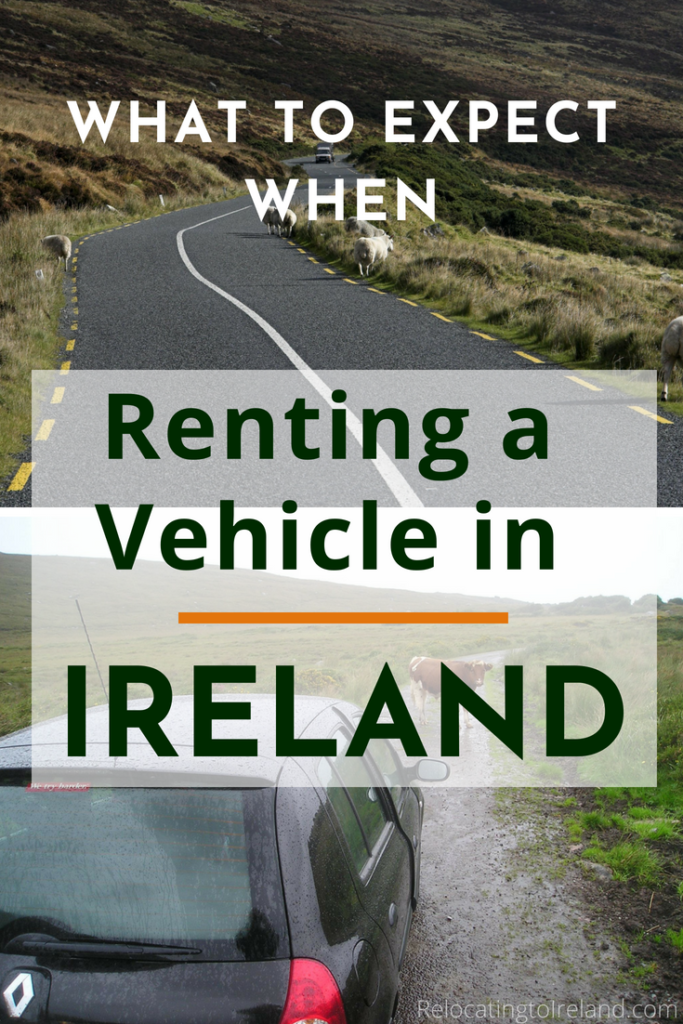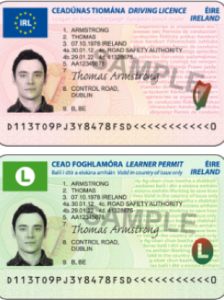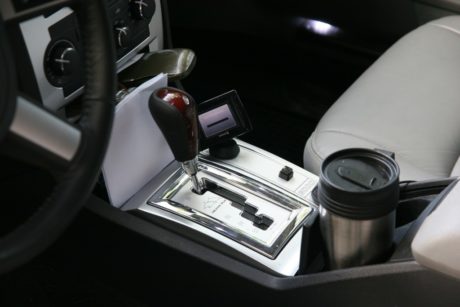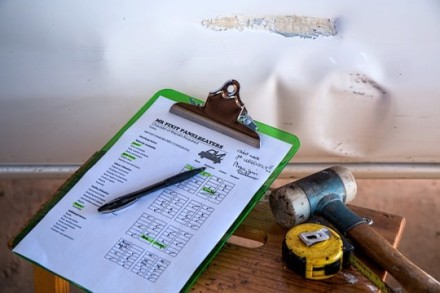This post may contain affiliate links. If you make a purchase through a link, I may receive a small commission, at no cost to you. These commissions help keep this website up and running, and I thank you for your support. Read my full disclosure here.

I’ve been contacted several times by readers asking me to explain the complexities of renting a vehicle in Ireland, so thought I would put together a post with all the things you need to know. Initially it may look a bit daunting but take your time to go through each item and it will eventually begin to make sense, I promise. And yes, it is annoying that there are lots of different and confusing fees.
Requirements
Drivers Licence
When renting a vehicle, most companies will accept a driver’s licence from the country that you reside in. You need to have held your drivers licence for 8 years (usually 10 years if you are hiring a carrier vehicle) and a full drivers licence for at least 2 years.
Don’t forget to bring along an English translation where appropriate.

Age
The minimum age varies from 21 to 25 years (usually 21 or 23 years). Some companies may charge a young driver surcharge.
If you are 75 years or over, you will have to provide additional evidence such as a letter from your current motor vehicle insurance and a letter from your GP. Check with the car rental company in advance so you have plenty of time to get these prepared.
Additional Drivers
Companies typically charge a fee for each additional driver. It is usually charged as a daily rate. The additional driver/s will need to meet the requirements outlined above.
Transmission
Most cars in Ireland have a manual/stick transmission. You can hire an automatic, but you will typically need to pay more. If you want an automatic during the peak summer season, then book in advance to ensure you get one.

Payment and Surcharges
This is where it can get complicated but stick with me and I will try and explain each one. These charges can really add up and potentially blow your budget, so work out what you will be expected to pay in advance so you are not caught out when you finally reach the counter to collect your vehicle.
Value Added Tax (VAT)
VAT is an Irish tax which is charged at 13.5% for car rentals. No avoiding this one I’m afraid.
Vehicle Location Service Charge (LSC)
This is an additional fee that is charged when you collect or drop off the car at certain locations such as the airport and city centres. The fee varies but is normally displayed on your online quote. This is one of the surcharges that really annoys me, as it can as high as €30!
Roadside Safety Net
Some car rentals (like Avis) ask for an additional daily fee to cover a call out charge for non-mechanical issues. I personally think this one is ridiculous and tend to stick with the companies that offer a 24/7 Roadside Assistance as part of their service that is included in their rates.
One Way Rentals
Car rental companies usually charge a rather steep fee for one-way rentals. Some may not offer it at all.
Mileage
Most car rental companies in Ireland usually offer unlimited mileage as standard. But do look out for it just incase they only offer limited mileage. Make sure it stipulates unlimited klms in the T&S’s (unless you don’t plan to drive more than the maximum stipulated klms and this isn’t really an issue for you).
Payment
You need an actual credit card, not a debit card from a credit card company e.g. Visa because of the holds they will place on it (see below). It usually needs to be in the name of the main driver.

Car Rental Insurance
This is where things can get really confusing as there are lots of different insurances. All hire companies in Ireland include standard insurance with the vehicle rental, but then you need to consider the following additional insurances.
Collision Damage Waiver (CDW)
Apparently, this is not technically an insurance but is referred to as an ‘optional service’. Basically, it limits your liability for damage to the vehicle, BUT it doesn’t cover theft or vandalism (to cover these incidents, see Theft Protection Cover option below). If you don’t take this cover out, then you are liable for the FULL value of the vehicle!
Car rental companies will place a ‘hold’ on your credit card to cover the excess, which can range from €1,200 up to €5,000. This could be a problem if you have a low credit limit on your credit card and/or you are also planning to use it for other holiday expenses, as the hold is only released when the vehicle is returned without damage.
If the car does have damage such as a scratch, chip or dent, they will retain the cost for this damage and then only release the remaining balance (that’s if there is any money remaining after this cost is subtracted).
If you want to avoid this ‘hold’, then you can arrange to remove the excess by purchasing additional Super Damage Waiver (SCDW) insurance (see below).
Theft Protection Cover (TP)
In the event of a theft or attempted theft, TP provides cover up the full value of the rental car. However, you will still be liable for the same excess amount as damage. Be aware that this insurance usually doesn’t cover for loss of personal possessions, so make sure you have this cover with your own personal travel insurance if you want it.
If you want to avoid this ‘hold’, then you can arrange to remove the excess by purchasing additional Super Damage Waiver (SCDW) insurance (see below).
Declining CDW and TP
As I explained, CDW and TP Insurance reduce your financial liability for damage or theft of the vehicle. If you decline them then you will be required to pay a high liability deposit of around €5,000 on your credit card. They may also charge an administration fee. If you don’t take this cover out, you are liable for the FULL value of the vehicle! Some car rental companies may not even agree to rent you a vehicle under these circumstances.

Self Insuring Through a Third Party
There are several ways you can get cheaper insurance cover, but these involve getting insurance via a third party. But be aware, despite having cover, the car rental company will still place a ‘hold’ on your credit card for the excess and will retain the cost for this damage from this excess. You will then need to request a refund for this cost from your third party insurer. The only way to avoid this ‘hold’ is to purchase additional Super Damage Waiver (SCDW) (see below).
- Credit Card cover: Some credit card companies provide car rental insurance. The main driver must be the holder of an eligible US issued World MasterCard or Canadian issued Gold/Platinum Visa/MasterCard which allows you to waive CDW and Theft Protection in Ireland. Make sure you bring a letter from your credit card company confirming you have the relevant coverage.
- Travel insurance cover: You might have rental car insurance via your travel insurance.
-
Cover through a third party car rental site: You may have booked your car rental through a third party car rental site (such as Rental Cars). Whilst in Croatia our car got hail damage and we were charged €600. However, after lodging our claim with the provider we were reimbursed within a week, so this wasn’t an issue for us. But this may be a problem for some of you not able to cover the ‘hold’ amount or the cost of the damage whilst awaiting reimbursement.
Super Collision Damage Waiver (SCDW)
This is an optional extra cover which reduces your excess to zero. If you choose to take out SCDW, you don’t have to take out the additional CDW and TP insurance. It also means that you don’t have an expensive ‘hold’ on your credit card. If you damage the car, you won’t need to pay anything as you will be covered. SCDW can be purchased at the rental desk upon arrival. If you want a stress-free holiday, then this is a good option, but it is pricey. I must admit that I tend to pay for this cover (unless I have third party cover) so that I don’t have to worry about any damage incurred during my holiday.
However, if you have cover through a third party you may not need to purchase this insurance. See my section on declining CDW and TP insurance above for more details.
Windscreen Protection
Some car rental companies have yet another insurance for windscreen protection. Sometimes this is already included in the SCDW. For a daily fee, you can reduce your excess to zero for damage to the front windscreen. I tend to avoid the companies that charge this (I’m looking at you Avis) because there are plenty that don’t.

Fuel
Your vehicle will start with a full tank of fuel, but you will usually be offered two options:
- Return with a full tank: You can agree to return the car with a full tank (which I always do). If you don’t, then the hire company will charge their fuel prices to fill it up which are always much higher than just getting it at a normal petrol station.
- Prepay for a full tank: Commonly referred to as our Fuel Purchase Option (FPO), you pay for a full tank upfront. But your aim here would be to return it with as little petrol possible, as they don’t refund you for any unused fuel.
Filling Your Car with Fuel
In Ireland unleaded fuel is dispensed from the green fuel pumps and diesel fuel is dispensed from black fuel pumps. If you forget which fuel your vehicle takes, there should be a sticker inside the fuel cap to remind you. Don’t get it wrong, as it will be an expensive mistake!
Border Crossing – Travelling from the Republic of Ireland and Northern Ireland
Rental terms and conditions can differ between the Republic of Ireland and Northern Ireland, so don’t assume they will be the same. In addition, if you are planning to drive the rental vehicle from the Republic of Ireland into Northern Ireland or vice versa, some companies either won’t permit it at all or will charge you a border crossing fee. This is typically charged by small companies because they don’t have any offices in Northern Ireland. For example, if you broke down they would have to pay a company in Northern Ireland to come and pick up the car and take it back down into the Republic of Ireland. I know that some people might think this is a scam, but it is just from a practical point for these companies. I have come across this in a number of countries. e.g. when I was hiring a car from Dollar rentals in Portland, Oregon I couldn’t drive it into Colorado. The company explained it was because at the time they didn’t operate in Colorado (might have changed since, as this was a few years ago now).
Therefore, if you want to drive the car across borders, check the fine print before booking it and stick with the larger multinational companies that operate on both sides of the border such as Hertz, Europcar, Avis. However, if you aren’t planning on crossing the border, then the smaller companies can often provide a more competitive rate than these big companies, so do consider them.
Tip
- If you are crossing borders, then don’t forget that Northern Ireland is part of the United Kingdom so uses the British Pound Sterling as currency, whereas the Republic of Ireland uses the Euro.
GPS Hire
Don’t waste money on hiring a GPS, just use Googles free offline maps – here’s a link to my post How to Use Google Maps Without WIFI Or Roaming detailing how to use it. You don’t need to have a data plan or Wi-Fi for it to work!
Additional Tips for Renting a Car in Ireland
- Booking online: If you are booking online, look out for what is included in the quoted price so you don’t end up with surprise fees when you turn up to collect the vehicle.
- Fines: Some car rental providers place an additional ‘hold’ fee for potential fines that you may incur whilst hiring the vehicle.
- Checking for damage: The paperwork provided to you by the car rental company will have any damage to the car marked on it, but you will need to check this when you get to the car and compare. If you see any damage not on the paperwork, then head back the counter to get them to mark and sign/stamp this damage on the paperwork – keep this paperwork safe and hold onto it for several months following your holiday incase they try to charge you for something following the return of the vehicle.
- Tolls: Ireland has toll roads which can be avoided if you want to, just choose the ‘avoid tolls’ function on your GPS or Google maps. Hire car companies usually charge your credit card with any toll costs you incur, but some will expect you to arrange payment yourself, which you can easily do online. Just check the arrangement with your car rental company before heading out or avoid the tolls and take the alternative route.
- Tips for driving around Ireland: Here is a detailed post that contains everything you need to know about driving around Ireland, including how to drive those dreaded roundabouts.
- Hiring a car in Dublin: if you are arriving in Dublin airport and planning on spending a few days in the city before heading out, I would recommend collecting the hire vehicle from the city area (get a bus or tram to the pick up locations which are usually just out of the city centre). You don’t really want the hassle of a car whilst in Dublin as there is very limited car parking and so much congestion that it takes forever to get even short distances. Alternatively, Dublin is very flat and easy to get around on foot or public transport. It will also save you some money on car hire.








Derek Spurdens
This read has been the most complete and thorough explanation of car rental in Ireland..thank you. My plan.is to fly into Dublin and bus it to Shannon and rent the car there to avoid Dublin..its just another big city so the rest of Ireland is what I want..wish me luck
Colleen
I’m so glad it helped. Good luck with your travel plans, I hope you have a fantastic time.